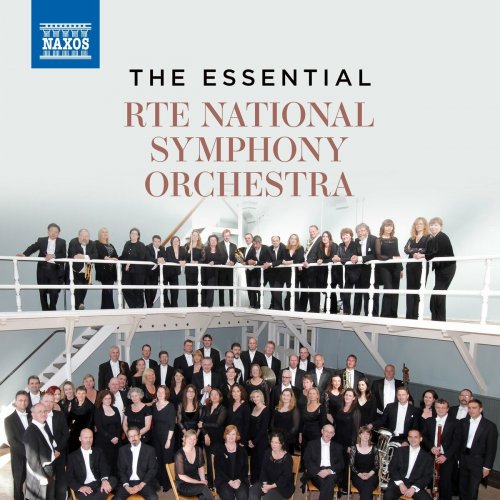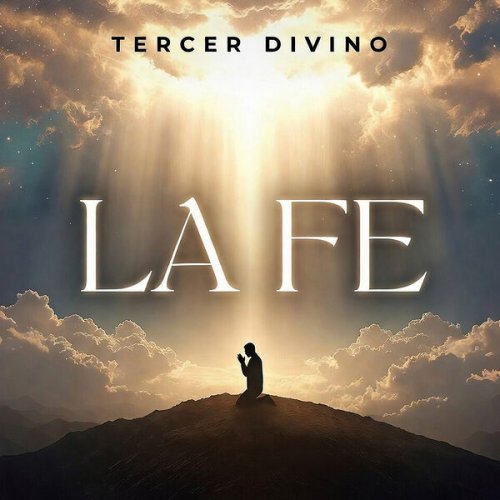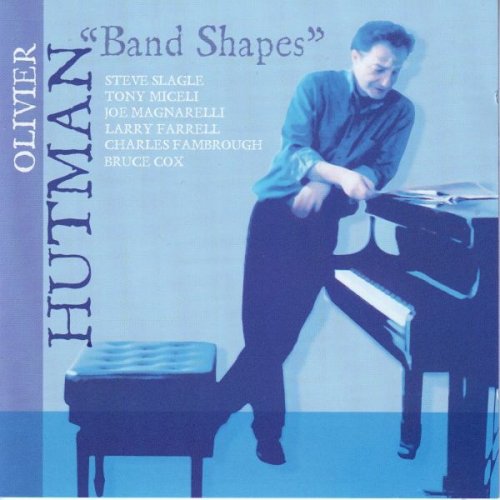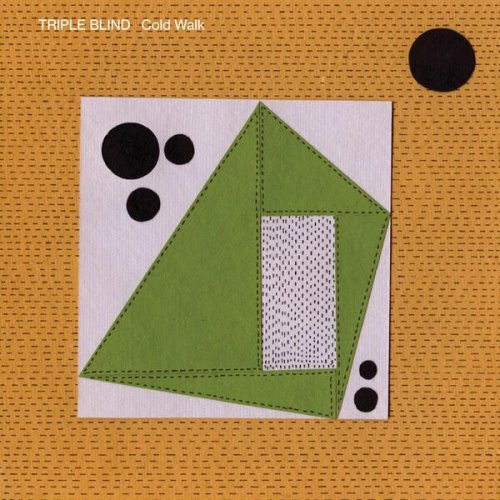RTÉ National Symphony Orchestra - The Essential RTÉ National Symphony Orchestra (2024)

Artist: RTÉ National Symphony Orchestra
Title: The Essential RTÉ National Symphony Orchestra
Year Of Release: 2024
Label: Naxos
Genre: Classical
Quality: FLAC (tracks)
Total Time: 147:28 min
Total Size: 594 MB
WebSite: Album Preview
Tracklist:Title: The Essential RTÉ National Symphony Orchestra
Year Of Release: 2024
Label: Naxos
Genre: Classical
Quality: FLAC (tracks)
Total Time: 147:28 min
Total Size: 594 MB
WebSite: Album Preview
01. Finnegan's Wake
02. An Irish Symphony: The Fair-Day
03. Aida: Grand March
04. Les biches Suite, FP 36b: I. Rondeau
05. Symphony No. 1 in E Major, Op. 70: III. Allegro con brio
06. Das Lied von der Erde: III. Von der Jugend
07. Gemini Concerto: II. Dublin: Celtic Air and Runaway Reel
08. Pelléas et Mélisande, Op. 80: Sicilienne
09. 2 Fantasiestücke, Op. 17: No. 2, Hexentanz (Witches Dance)
10. Den förlorade sonen Suite: VI. Polka
11. Symphony No. 4: III. Allegro
12. 6 Pieces, Op. 19, TH 133: No. 4, Nocturne (Version for Cello & Orchestra)
13. In memoriam, Third Scene
14. L'étoile du nord, Act III: Entr'acte (Live)
15. Jamestown Concerto: I. London 1606. The Virginia Company
16. Petite Suite, WD 39: No. 2, La poupée
17. Symphony No. 2, Op. 40: IV. Allegro con brio
18. Le nozze di Figaro, K. 492: Le Nozze di Figaro, K. 492: Overture (the Marriage of Figaro)
19. Cello Concerto: III. Children's Games
20. Symphony No. 2: III. Half note = 50
21. Kolokola (the Bells), Op. 35: I. Allegro, ma non tanto
22. 6 Title Themes in Search of a Movie: I. Wild Nights in Toronto: Dance Overture
23. Symphony No. 5, Op. 50, FS 97, CNW 29: IV. Andante un poco tranquillo - Allegro
24. Fantasia Gaelach No. 1
25. Symphony No. 1, Op. 26, "Ländliche Hochzeit": Tanz: Finale (Rustic Wedding Symphony)
26. Valse Gracieuse
27. Symphony No. 5 in D Major, Op. 107, MWV N 15 "Reformation": II. Allegro vivace
28. Vathek: VII. Variation IV: Palais des Parfums
29. Concerto for Violin & Cello in A Minor, Op. 102: II. Andante
30. L'apprenti sorcier
Ireland's RTÉ National Symphony Orchestra is the concert music orchestra of Radio Television Ireland. Formerly the National Symphony Orchestra of Ireland, the ensemble began with the formation of a national radio channel, based in Dublin, in 1926. The station hired staff musicians, who often played together on the radio and in concert as a chamber orchestra. String players from the radio, wind players from the Army School of Music, and other musicians played as the Dublin Philharmonic Society under the direction of Col. Fritz Brase, head of the Army School from 1927.
In 1947, the broadcasting authority, now called Radio Éireann (Radio Ireland), expanded its orchestra by opening its membership to musicians from all over Europe and renaming the group the Radio Éireann Symphony Orchestra. Its initial conductor was Captain Michael Bowles. After he retired in 1948 (he had been conducting the small predecessor or the RÉSO for several years), the new orchestra drifted without a permanent conductor, but played for such major conductors as Jean Martinon and Hans Schmidt-Isserstedt. Finally, in 1953, the orchestra found a principal conductor in Milan Horvat, who remained until 1961. Also in 1953, Ireland added television to its broadcasting service. The name of the government body (in English) established by a new broadcasting act in 1960 was the Irish National Public Service Broadcasting Organisation, and the on-air service became Raidió Teilifís Éireann (RTÉ). The orchestra became known as the RTÉ Symphony Orchestra, and it was, de facto, the national orchestra of Ireland and the main city orchestra of Dublin. Its chief conductor from 1962 was Tibor Paul. He was succeeded by Albert Rosen, Colman Pierce, Bryden Thomson, and Jànos Fürst.
In 1981, the orchestra found a new concert home when the National Concert Hall opened in Dublin. At about the same time, it expanded its broadcasting activities. Until 1979, RTÉ had run only one radio channel and one television channel. In 1979, it established more channels, including an arts station called FM3, which aired numerous concerts by the RTÉSO. In 1989, the orchestra was expanded to the size of a large symphony orchestra, and it was renamed the National Symphony Orchestra of Ireland. Its principal conductor was George Hurst. Kaspar de Roo took that position in 1994, followed by Alexander Anissimov and Gerhard Markson. In 2005, the orchestra changed names again, officially becoming the RTÉ National Symphony Orchestra. As of 2018, the principal conductor's post was vacant, but Nathalie Stutzmann was under contract as principal guest conductor, and the orchestra had a large roster of world-class guest conductors to draw on.
The RTÉ National Symphony Orchestra has championed contemporary music with Irish premieres like Thomas Adès' Totentanz, Wolfgang Rihm's Verwandlung 4, Kaija Saariaho's Circle Map, Wave Movements by Bryce Dessner (of the rock band the National), and Richard Reed Parry (Arcade Fire). The orchestra also plays a major role in music education in Ireland, with a full schedule of school concerts and youth events. The orchestra has recorded extensively for the Naxos label, issuing a recording of Poulenc's ballet Les biches in 2018. The following year saw the release of Orchestrated, a collaboration with Irish folk legend Mary Black. In 2022, the orchestra was removed from RTÉ's auspice and added to that of the National Concert Hall, reverting to the name National Symphony Orchestra of Ireland. ~ James Manheim & Joseph Stevenson
In 1947, the broadcasting authority, now called Radio Éireann (Radio Ireland), expanded its orchestra by opening its membership to musicians from all over Europe and renaming the group the Radio Éireann Symphony Orchestra. Its initial conductor was Captain Michael Bowles. After he retired in 1948 (he had been conducting the small predecessor or the RÉSO for several years), the new orchestra drifted without a permanent conductor, but played for such major conductors as Jean Martinon and Hans Schmidt-Isserstedt. Finally, in 1953, the orchestra found a principal conductor in Milan Horvat, who remained until 1961. Also in 1953, Ireland added television to its broadcasting service. The name of the government body (in English) established by a new broadcasting act in 1960 was the Irish National Public Service Broadcasting Organisation, and the on-air service became Raidió Teilifís Éireann (RTÉ). The orchestra became known as the RTÉ Symphony Orchestra, and it was, de facto, the national orchestra of Ireland and the main city orchestra of Dublin. Its chief conductor from 1962 was Tibor Paul. He was succeeded by Albert Rosen, Colman Pierce, Bryden Thomson, and Jànos Fürst.
In 1981, the orchestra found a new concert home when the National Concert Hall opened in Dublin. At about the same time, it expanded its broadcasting activities. Until 1979, RTÉ had run only one radio channel and one television channel. In 1979, it established more channels, including an arts station called FM3, which aired numerous concerts by the RTÉSO. In 1989, the orchestra was expanded to the size of a large symphony orchestra, and it was renamed the National Symphony Orchestra of Ireland. Its principal conductor was George Hurst. Kaspar de Roo took that position in 1994, followed by Alexander Anissimov and Gerhard Markson. In 2005, the orchestra changed names again, officially becoming the RTÉ National Symphony Orchestra. As of 2018, the principal conductor's post was vacant, but Nathalie Stutzmann was under contract as principal guest conductor, and the orchestra had a large roster of world-class guest conductors to draw on.
The RTÉ National Symphony Orchestra has championed contemporary music with Irish premieres like Thomas Adès' Totentanz, Wolfgang Rihm's Verwandlung 4, Kaija Saariaho's Circle Map, Wave Movements by Bryce Dessner (of the rock band the National), and Richard Reed Parry (Arcade Fire). The orchestra also plays a major role in music education in Ireland, with a full schedule of school concerts and youth events. The orchestra has recorded extensively for the Naxos label, issuing a recording of Poulenc's ballet Les biches in 2018. The following year saw the release of Orchestrated, a collaboration with Irish folk legend Mary Black. In 2022, the orchestra was removed from RTÉ's auspice and added to that of the National Concert Hall, reverting to the name National Symphony Orchestra of Ireland. ~ James Manheim & Joseph Stevenson
![Andrea Braido - An Evening with Andrea Braido Trio Live! (2026) [Hi-Res] Andrea Braido - An Evening with Andrea Braido Trio Live! (2026) [Hi-Res]](https://www.dibpic.com/uploads/posts/2026-03/1772441152_cover.jpg)


![Chad Lefkowitz-Brown - City Spirit (2026) [Hi-Res] Chad Lefkowitz-Brown - City Spirit (2026) [Hi-Res]](https://www.dibpic.com/uploads/posts/2026-02/1772171883_y3mc4z2lmsr7a_600.jpg)
![Anaïs Mitchell, Hadestown Original West End Cast - Hadestown Live From London (Bonus Track) (2026) [Hi-Res] Anaïs Mitchell, Hadestown Original West End Cast - Hadestown Live From London (Bonus Track) (2026) [Hi-Res]](https://img.israbox.com/img/2026-03/02/pyxmwd7tv9pde1c102p9df24t.jpg)



![Mehmet Ali Sanlikol - The Electric Oud Man Speaks and You Listen... (2026) [Hi-Res] Mehmet Ali Sanlikol - The Electric Oud Man Speaks and You Listen... (2026) [Hi-Res]](https://img.israbox.com/img/2026-02/28/0areq907i6p8nj96306jai1a0.jpg)